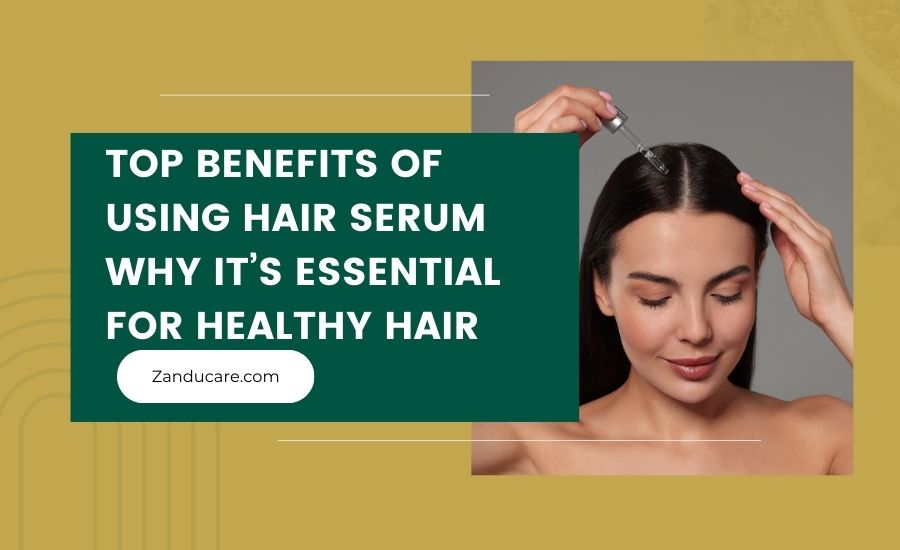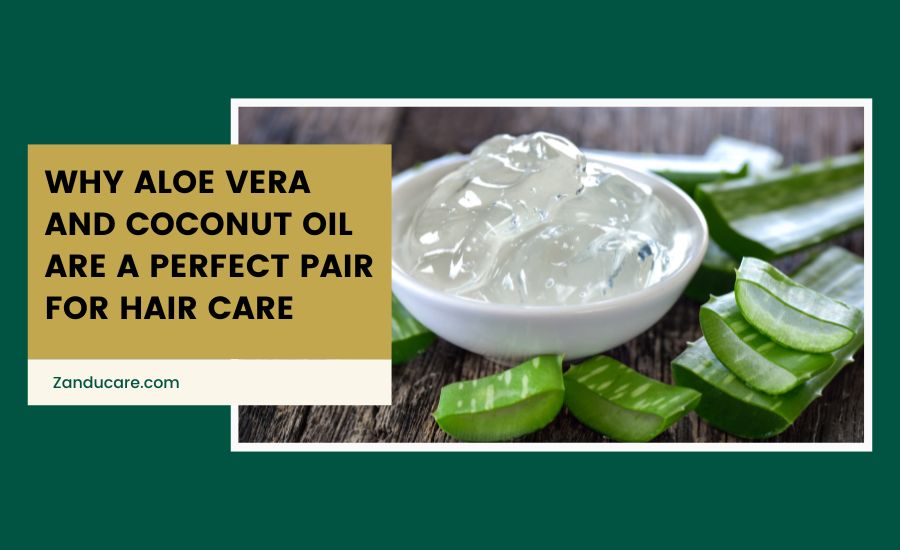
Top Benefits of Using Hair Serum: Why It’s Essential for Healthy Hair
|
Key insights:
|
Hair serum has become a go-to product for many people looking to enhance their hair's appearance and health. Whether you're battling frizz, seeking added shine, or trying to protect your hair from daily damage, hair serums can offer a quick solution. In this article, we'll explore hair serums, their benefits, how to choose the right one for your hair type, and the common mistakes to avoid when using them.
|
Did you know:
|
What is Hair Serum, and How Does It Work?

Hair serum is a hair care product made with lightweight oils, silicones, and other ingredients that help nourish, protect, and boost hair's shine. It forms a smooth, lightweight coating over each strand to help reduce frizz, flyaways, and static electricity.
Hair serums work by sealing the hair cuticles. The outermost layer of the hair strand, known as the cuticle, is made up of shingle-like scales that can become raised and uneven over time due to damage from heat styling, brushing, environmental exposure, and chemical treatments. This causes the hair to appear dull, dry, and frizzy.
Hair serum ingredients like silicones and oils lay down smoothly over each cuticle to help seal and smooth them flat. This helps the hair better reflect light for added shine while also protecting it from humidity and heat damage.

Overview of Hair Serum Ingredients
Some of the most common ingredients found in hair serums include:
- Silicones - Dimethicone, amodimethicone, cyclomethicone. Help smooth and seal the cuticles.
- Oils - Argan, jojoba, almond, coconut, marula. Nourish and moisturise hair.
- Ceramides - Help strengthen and repair hair.
- Vitamin E - A natural antioxidant that helps nourish hair.
- Sunflower seed extract - Contains nutrients like vitamin E and linoleic acid for hair health.
- Keratin - The protein hair is made of. Helps strengthen and smooth hair.
- Botanical extracts - From plants like ginseng, chamomile, aloe vera. Provide nutrients.
List of Top Hair Serum Benefits for Hair
1. Adds Shine and Smoothness

One of the main reasons people use hair serum is for extra shine and smoothness. The oils and silicones in serums help hair look glossier by allowing light to reflect more evenly off the cuticle. The sealing and smoothing effects also mean fewer raised, rough patches for frizz-free hair with lots of sleekness.
2. Tames Frizz and Flyaways
Thanks to its sealing and smoothing effects, hair serum is excellent for controlling frizz and flyaway hair. The lightweight coating keeps cuticles flat and tight, so hair lies flatter against the head. This helps reduce the frizzy, static-y look caused by dryness or humidity, so hair appears smoother.
3. Protects Hair from Heat Damage
Regular heat styling can degrade hair, causing dryness, brittleness, and breakage. Hair serum helps protect against heat damage in two ways. First, the oils nourish hair to keep it strong and supple. Second, the silicones form a barrier that helps insulate hair from high temperatures.
This makes hair serum ideal for use before heat styling with blow dryers, curling irons, or flat irons.
4. Helps with Hair Detangling
The smoothing effects of hair serum also make detangling easier by helping reduce friction and tangles. Applying a few drops of serum to the mid-lengths and ends of hair allows combs and brushes to glide through more easily.
This helps prevent damage caused by tugging and pulling at knots. It’s especially useful for smoothing tangles in dry, curly, or thick hair.
5. Nourishes Dry and Damaged Hair

If your hair tends to be very dry or damaged from overprocessing, hair serum can help restore moisture and strength. The oils in the serum penetrate the hair cortex to nourish it with fatty acids, antioxidants, and other compounds. This helps rebuild hair’s lipid barrier to prevent moisture loss. Regular use will make hair look softer, smoother, and supple.
6. Boosts Hair Hydration
Some hair serums nourish hair and contain humectants that help attract and seal in moisture. Common humectants include glycerin, panthenol, and hyaluronic acid. These provide lightweight hydration to make hair more flexible and less prone to breakage. The hydrating effects combined with oils make hair serum ideal for dry hair.
How to Choose the Right Hair Serum for Your Hair Type?
Choosing the right serum is crucial to getting the desired results without weighing your hair down or causing build-up.
1. Hair Serum for Dry Hair
Look for serums rich in nourishing oils like argan or coconut oil for dry hair. These ingredients add hydration, leaving the hair soft and manageable. Serums with added vitamins and proteins can also help repair damage and restore moisture.
2. Hair Serum for Oily Hair
If you have oily hair, opt for lightweight, non-greasy serums. Avoid products with heavy oils and instead look for formulations with cyclomethicone or dimethicone, which will add shine without making your hair look greasy.
3. Hair Serum for Curly Hair
Curly hair can be more prone to dryness and frizz, so a serum specifically designed for curls will offer extra hydration and hold. Look for serums that define curls and reduce frizz while adding moisture to keep your curls looking bouncy and well-shaped.
4. Hair Serum for Coloured Hair
Coloured hair needs extra protection to maintain vibrancy and prevent fading. Choose sulfate-free serums and UV filters to protect your hair from sun damage. These serums also help to maintain the health and shine of coloured hair.
How to Apply Hair Serum on Hair?
- Apply to clean, damp hair before heat styling for protection.
- Focus on mid-lengths to ends to avoid roots getting greasy.
- Use sparingly - a few drops rubbed between palms, then smoothed over hair is enough.
- Apply to dry hair after styling to smooth flyaways and frizz.
- Avoid getting serum onto the scalp as it can cause buildup.
Also, do check:
Common Mistakes to Avoid When Using Hair Serum

Here are some of the common mistakes which you should avoid if you are planning to use hair serum or using it:
1. Using Too Much Product
Only a small amount of serum is needed to smooth hair. Using too much can lead to greasy, limp, weighed-down hair. Start with a few drops and add more if needed. Focus application on mid-lengths to ends.
2. Applying Hair Serum to the Roots
Applying serum at the roots can cause buildup at the scalp and make hair look flat and greasy. Concentrate application from mid-lengths to ends only.
3. Not Choosing the Right Serum for Your Hair Type
Using a serum formulated for dry hair on oily hair may lead to limpness, while using a lightweight serum on dry hair may not provide enough nourishment. Choose a formula suited to your hair’s needs.
Hair Serum vs Hair Oil: What’s the Difference?
Key Differences in Function and Benefits
While hair serums and oils may seem similar, they serve different purposes. Hair oils penetrate deep into the hair shaft, providing long-lasting moisture and nourishment, while serums work on the surface, primarily offering shine, smoothness, and heat protection.
When to Use Hair Serum vs Hair Oil
Use a serum for instant smoothness, shine, and protection before styling. Hair oil is better suited for deep nourishment and hydration and is often applied as an overnight treatment or as a leave-in conditioner.
Conclusion
Hair serums offer numerous benefits, from adding shine and taming frizz to protecting your hair from heat damage and environmental stressors. You can keep your hair healthy, smooth, and vibrant all day with the right product and proper application techniques. By choosing the right serum for your hair type and avoiding common mistakes, you can ensure your hair stays nourished, hydrated, and damage-free.
Frequently Asked Questions on Hair Serum Benefits
1. Can I use hair serum daily?
Hair care professionals do not advise daily serum use. Serum usage should be restricted to special occasions and days you wash your hair. However, daily use of an oil-based serum is also an option if your hair is incredibly frizzy and unmanageable.
2. Does hair serum have side effects?
The chemicals in hair serums, including silicone, can cause adverse consequences if you use them for a long time. Overuse of serums can cause significant breakage and hair loss. A few of them could irritate, inflame, induce hair loss, redden, or itch your mane (a person's long flowing hair).
3. Can serum increase hair growth?
In addition to keeping hair well-hydrated, the serum encourages hair development, reduces frizz, detangles hair, and provides many other advantages. With a natural and safe serum, you can also obtain stronger, more glossy hair.
4. Can I apply serum on wet hair?
While certain serums are OK to use on dry hair, applying the serum to damp hair is ideal before using the rest of your styling products to seal in the benefits. While touch-up serum applications during the day are acceptable, clean hair is the ideal surface for the initial application.
5. Can you sleep with serum on?
It is advised to apply serum at night because your skin repairs itself while you sleep. Applying serums at night improves absorption, enabling them to target particular issues like moisture, fine lines, and wrinkles and promoting a healthier complexion in the morning.
References:
- Your hair can be efficiently softened, smoothed, and made silky using hair serum. (https://globalresearchonline.net/)
- Reduces frizz. Your hair may appear dry or frizzy if it is weak and damaged. (https://globalresearchonline.net/)
- Hair serum promotes shine and minimises tangles.(https://globalresearchonline.net/)
- Those with dry, frizzy hair will benefit from hair serums the most. Hair serums make hair lustrous and silky while locking in moisture. (https://globalresearchonline.net/)






Leave a comment
This site is protected by hCaptcha and the hCaptcha Privacy Policy and Terms of Service apply.